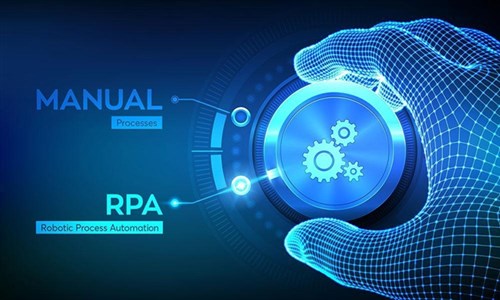min.pngL.jpg)
Organisations around the world today are hiring software engineers to improve the online experience their customers and employees have while using their platforms. According to statistics shared by the Bureau of Labor Statistics, employment opportunities for software engineers are going to grow by 22% in the period 2020-2030. With its growing reputation as a leading job role today in terms of growth, software development ranked at second place as the ‘Best Technology Job in America’ in 2022 according to the US News and World Report.
Software engineers are the silent creators of the IT industry. Combining their advanced expertise with modern engineering innovation, they help businesses and individuals overcome hardware limitations to create a seamless and personalised user experience.
If you are looking for a career as a software developer, there are several ways to go about it. To learn software engineer skills that will help you
advance in your profession and build a solid career as a developer takes a little effort and dedication.
But before getting into the steps to follow, take a look at the kind of remuneration you can expect from this role.
Software Developer Career Opportunities:
As of May 2019, software developers were earning about USD 111,620 per annum on average. This salary scale varies based on the location, organisation and experience you bring to the table. In New York, the average software developer was earning an annual salary of $119,570, higher than the given national average.
How to Develop Software Engineer Skills:
1. Opt for an undergraduate degree in Computer Science or any related field:
One of the oldest and most effective ways to become a software developer is to start preparing at the graduation level. Many science and IT enthusiasts go for an undergraduate degree in computer science and strengthen their foundational understanding of software engineering principles. Data structures, web technology, algorithms, mathematics, computer networks and programming languages are among the top subjects that you can learn in such a course or degree. This is an effective and holistic learning option, but it has one great limitation. Most computer science degrees have an age limit. Someone who is already working might not have the option to pursue such a course if they haven’t done it already.
2. Learn programming languages:
Human beings from different regions use a common language to communicate with each other. Likewise, computers also communicate with each other and with humans using programming languages. Whether you are a computer science graduate or not, programming is a critical software engineer skill that you need to have if you wish to build a successful career. At this point, you can start by learning one or more programming languages that can help you achieve specific goals and objectives. There are many languages you can choose from (which we cover in detail below) such as C++, Ruby, Python and JavaScript.
As a beginner, don’t worry about learning 3-4 programming languages at the same time. Start with a single language and master it in its entirety. Once you have learned one language and have enough experience, you can start venturing into the second language. Switching to a new language becomes easier after you have mastered one. Every programming language has a different syntax and various applications. Make sure you cover all the rules, libraries, advantages, features and projects you can build using each language. Platforms like Koenig provide holistic learning and courses for programming languages based on varying levels of expertise.
Also Read: How to Become a Cyber Security Engineer?
3. Study data structures and algorithms:
An algorithm is a systematic method or approach that helps solve several specific problems. A data structure refers to the system that organises data. Both these principles allow programmers to solve existing problems using minimal memory consumption and time taken. As a software engineer, you need to always provide the best solution for any problem that can minimise the usage of both memory and time. You should also know the right data structures and algorithms to be used in specific problems. For example, imagine you need to search for one element in a large data set. You could choose to search for it using a binary approach or a linear one. Based on that, you can prioritise whether saving time or memory is more important and what it is you are searching for in the data.
Mastering algorithms and data structures will play a significant role in your growth as a software engineer. Studying mathematics and statistics will also help you design and analyse the best algorithms based on your understanding of the problem at hand. There are several websites and free resources available online where you can learn these principles for free. But for a more strategic study plan and long-term preparation, consider enrolling in an online course on any programming language of your choice. This will help you approach problems strategically.
4. Enhance your present-day skills:
Programming is not a discipline you can learn about once and then leave it at that. You are on a never-ending learning journey where you need to keep learning and upskilling even when you’re working. Earning a degree will definitely give you a strong foundation, but you will have to keep learning throughout your life. Enrolling in a training course online is a good way to keep upgrading your skills and staying updated on trends and changes in trends and behaviours.
Several websites provide free resources to solve most programming-related queries. Other platforms offer online courses with expert mentorship and lifelong resource access to help you learn at your own pace.
5. Start designing and building projects or software:
Most employers ask for engineers with hands-on experience in software building or at least with experience working on various projects. Like in most other domains, your practical knowledge and experience are much more valuable than a score or your marks. The fundamentals of the various programming languages you use are only as useful as their public applications. Make sure you know how to apply them too while learning the theoretical parts.
You can accomplish this goal by building professional or personal projects, contributing to any open-source project, or participating in events or hackathons. You can then showcase your work to recruiters by creating a profile and putting all your work online. Potential employers will be able to see your work and judge your skills by looking at your work.
6. Go for a few internships that provide hands-on experience:
Internships are an effective way for new professionals to get industry experience and more exposure to the world, which opens up several job opportunities for them. Several organisations provide internships to new software engineers and freshers to help them gain experience and provide them with industry projects that will increase their experience. Working in an official environment also helps you understand how to operate in a workplace and work as a part of a team.
An internship is normally between three and six months in duration. Industry experts recommend that students should all complete a few internships while they are still in college. That way, while they are still building their foundation, they can understand both the theoretical and practical aspects of their learnings. Several colleges and online platforms also provide assistance to students looking for internships. What’s more, most of these companies usually extend internships or convert them into full-time roles that students can take up. This means if you take up such a role in your final year, you can have a job in your hand before you graduate.
You May Also Read: What Is a Data Engineer?: A Guide to Pursue As a Career
Top Programming Languages Software Engineers Should Focus On:
When you are starting your journey as a software engineer, there can be several challenges as you try to figure out which way to go for your first step. To help you understand where your starting point should be, take a look at the top programming languages used across global organisations.
JavaScript:
JavaScript is time and again recognised as the most widely used programming language in the world. Its enduring relevance across decades makes it a default first choice for most programmers. It is also easy to learn and makes up the backend of most leading web browsers.
Python:
Another common programming language is Python, which is primarily used for data science and back-end system development. It is a general-purpose programming language designed for multiple styles of programming, like functional and object-oriented, that can help in several types of projects. Similar to JavaScript, Python also has a simple syntax you can learn easily. However, even an experienced software engineer can see significant growth after learning Python.
Go:
Go was developed by Google as a programming language and has grown steadily since it was introduced in 2009. According to HackerRank analysts, Go is the top language that developers are trying to learn next. It was also identified as the 12th most widely recognised language in 2020. Given how old most of the competing programming languages are, you can safely assume that it will only become stronger and solidify the niche it has in the programming spectrum. This makes it valuable for software engineers around the world.
Java:
Java is globally recognised as the 5th most widely-used programming language among software developers. As an object-oriented and general-use programming language, Java is a valuable programming language for developers who create objects that encompass data and functions. The versatility of Java combined with its steady demand ensures its appeal remains timeless.
HTML:
HTML is highly accessible as a programming language and is generally used to describe the overall appearance and formatting of a page.
Now that you know what, how and why you should become a software developer, enrol in a training course on Koenig to give your career the boost it needs.







COMMENT